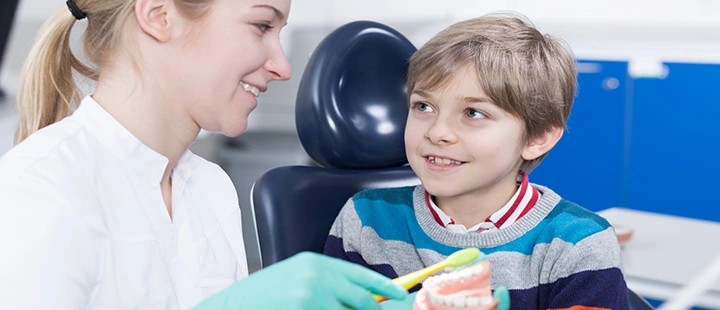Patient Communication
Communication plays a very significant role in hygiene appointments. In addition to the many preventive and diagnostic procedures the hygienist performs for her patients, she also takes responsibility for educating patients about how to care for their teeth and gums at home. This combination of clinical and educational duties keeps a hygienist very busy, but training with scripts will enable her to address additional informational needs without increasing time pressure or stress.
If properly trained in interpersonal communications, your hygienist can contribute to patient satisfaction and practice success in four main areas:
1. Education and Professional Advice – As already mentioned, providing sound guidance about home oral health care is an essential part of the hygienist’s job. She can add value through this role by offering dental care products she feels comfortable endorsing based on her professional experience and research.
2. Commentary on What She’s Doing – Don’t assume that patients know specifically what steps your hygienist takes during an appointment to examine, clean and protect teeth and gums. Even if they were told at one time, it’s not reasonable to expect them to remember. Better for the hygienist to simply mention what she’s doing, and why. This requires no extra time, and can reinforce patients’ commitment to make and keep regular hygiene appointments.
3. Reminding Patients about Treatment Not Yet Accepted – If you recommended treatment that patients have not positively rejected or accepted, your hygienist can revisit the subject without pressure. Alerted at the morning meeting, she can check the chart before seeing patients and then simply ask if they have given more thought to the matter. This often opens the door to a meaningful discussion when you come in to check patients.
4. Relationship Building – Script training makes it possible to inject personal, friendly elements into the hygienist-patient conversation… getting better acquainted, discovering common interests, etc. As she becomes aware of new personal facts about patients, she can write them down for a quick review before seeing patients the next time. Showing that she remembers details about the patients as individuals will be pleasing to them and beneficial for the practice-patient relationship.
Discuss these communications opportunities with your hygienist and provide training centered on scripts. You’ll be empowering her to improve her interpersonal skills and make the hygiene department an even greater asset at your practice.
Author
This resource was provided by Levin Group, a leading dental consulting firm that provides dentists innovative management and marketing systems that result in increased patient referrals, production and profitability, while lowering stress. Since 1985, dentists have relied on Levin Group dental consulting to increase production.



